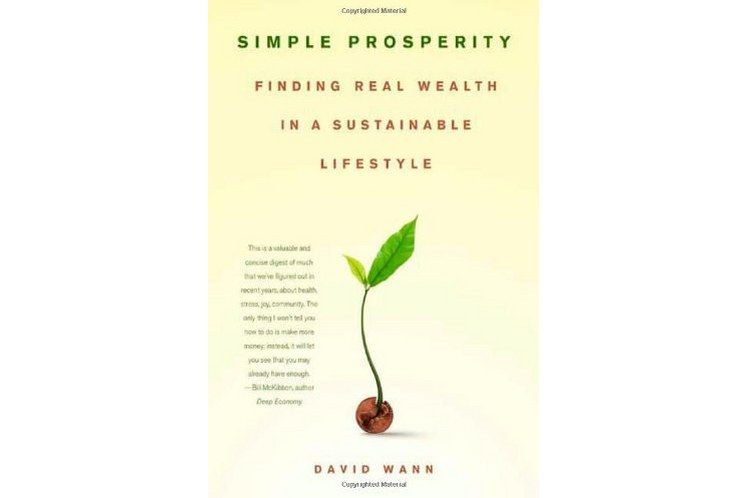內容簡介
In his bestseller "Affluenza," David Wann and his co-authors diagnosed the debilitating disease of over-consumption. In "Simple Prosperity" he shows readers how we can overcome this disease by investing in a variety of real wealth sources. To recapture a more abundant and sustainable lifestyle, try: - Creating a richer life story through personal growth incentives - Forming higher-yield friendships and stronger bonds through social capital - Taking preventive healthcare measures to build up wellness reserves - Balancing the biological budget through "greener" currency - Caring for people, not just cars, to improve your neighborhood wealth index - Resolving that pesky carbon conundrum through energy savings - Celebrating instead of desecrating Cultural prosperity futures value the earth as a sacred placeIn our age of hedge fund hysteria, "Simple Prosperity" is a new way of investing that will save our sanity and the planet.
作者簡介
David Wann is an author, filmmaker, and speaker on the topic of sustainable lifestyles and designs. Simple Prosperity is a sequel to the best-selling book he coauthored, Affluenza, which is now in 9 languages. A third book in the “trilogy” about creating a more sensible way of life is The New Normal, which has just been published by St. Martin’s press. It presents 33 high-leverage actions that can shift our culture in a more sustainable direction.
He has also produced 20 videos and TV programs, including the award-winning TV documentary “Designing a Great Neighborhood,” about the Holiday neighborhood in Boulder. David is president of the Sustainable Futures Society and a Fellow of the National Simplicity Forum. He worked more than a decade as a policy analyst for U.S. EPA and co-designed the cohousing neighborhood where he lives, in Golden.
目錄
Preface: a generation's journey back to health
Introduction
Taking stock: how foresight can cut our losses
Evolutionary income: an instinct for happiness
Personal assets
Personal growth: creating a rich life story
Mindful money: more value from better stuff
The bonds of social capital: the more we spend, the more we have
Time affluence: how to save it and savor it
Stocks of wellness: preventive pathways to health
The currency of nature: balancing the biological budget
Precious work and play: going with the flow
Public and cultural assets
The real wealth of neighborhoods: designing for people, not cars
Higher returns on investment: twice the satisfaction for half the resources
Energy savings: finessing the carbon conundrum
The benefits of right-sizing: better than better homes and gardens
Trimming the fat: farewell to fossil food
Infinite information: how to channel the flow
Historical dividends: new rules for an old game
Cultural prosperity: the earth as a sacred garden.
· · · · · ·

